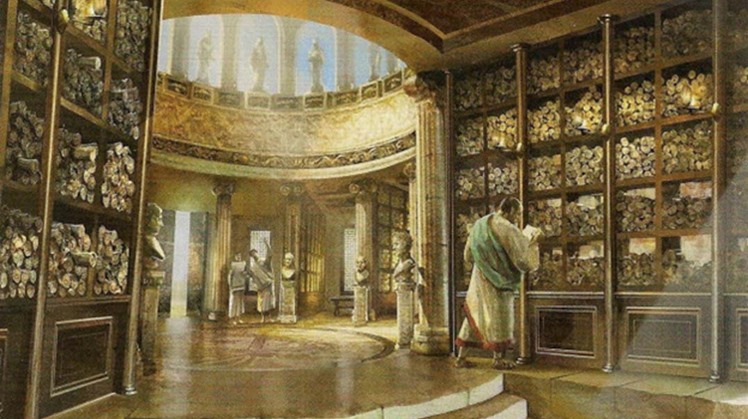The ancient Library of Alexandria built in the city that was the brainchild of Alexander the Great, Alexandria, was one of the greatest wonders of the world, hosting scholars who explored science, history and all other fields of knowledge.
The Great Library of Alexandria was also in Alexandria, one of the largest and most important libraries of the entire ancient world and was part of a larger research institution called Mouseion, which was dedicated to the nine gods of the arts in Greek mythology.
In Greece, the Athenian ruler Peisistratos is said to have founded the first major public library in the sixth century BC, and it was from this mixed heritage of the book collections of Greece and the Near East that the idea of the Library of Alexandria was born, according to the Greek website "greekreporter".
The idea of establishing a library in Alexandria was probably suggested by Demetrius of Phalerum, an exiled Athenian statesman who lived in Alexandria and was patronized by Ptolemy I, but the library itself was probably not built until the reign of his son, Ptolemy II.
The library quickly acquired many papyrus scrolls, largely due to the well-financed policies of the Ptolemaic kings to purchase texts. They sent royal agents in large sums of money, ordering them to buy and collect as many texts as possible, on any subject and by any author.
In a famous story, Ptolemy II decreed that any books found on ships that had reached the port were taken to the library, where they were transcribed by official scribes, and it is not known precisely how many precious manuscripts were kept in the library at any time. , but estimates range from 40,000 to 400,000 manuscripts.
Over time, a medical school was also set up in the library, where for the first time the scientific anatomy of man was performed; This practice alone provided invaluable knowledge to the medical world.
Alexandria quickly became the capital of knowledge and learning, in large part due to its amazing library as many important and influential scholars worked there during the 3rd and 2nd centuries BC.
Nevertheless, the library poses one of the world's greatest mysteries, explains Dr. Bob Brier, chair of the Department of Philosophy at Long Island University. "The amazing thing about the Library of Alexandria is that it was the most important place of learning in the ancient world."
 Sun, Sep. 5, 2021
Sun, Sep. 5, 2021